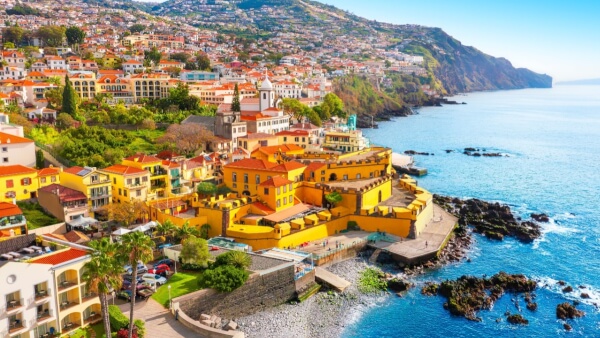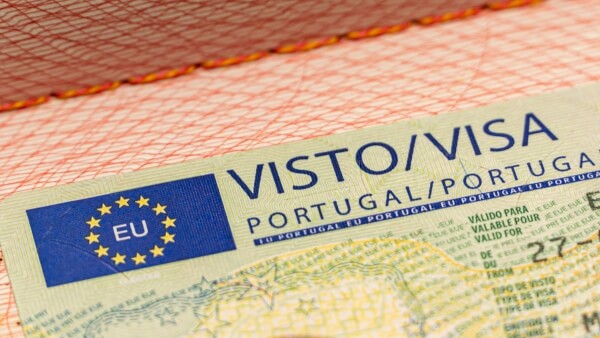Risks and pitfalls of buying property in Portugal
Read our guide on the pitfalls of buying property in Portugal and avoid the most common mistakes.

Considering buying a property in Portugal? It's a popular choice for expats and those looking for holiday homes, and for good reason. Portugal has it all - from beautiful weather and delicious food to friendly people and a gorgeous coastline.
But there are always fees and taxes to pay when you buy a property, and it can become more complicated when you’re house hunting abroad.
In this guide, we’ll cover everything you need to know about paying property taxes in Portugal. This includes the types of tax, rates and how to pay, along with extra rules that non-residents need to know about. Plus, the most cost-effective way to pay your property taxes in Portugal using Wise.
With our help, you should find it much easier to navigate the Portuguese tax system and secure your dream home. So, let’s get started.
In most countries, there are two main types of property tax to know about. The first category includes sales taxes, which are usually one-off payments you make when you purchase the property. The second is maintenance taxes, which are ongoing payments due to be paid on a regular basis.
In Portugal, there are two main types of sales tax¹ - property purchase tax (IMT) and stamp duty (IS). In addition, all property owners must pay an annual maintenance tax known as Immovable property tax (IMI).
You’ll need to pay all of these property taxes whether or not you’re a Portuguese resident¹.
There may also be property taxes due if you sell a property in Portugal. We’ll take a closer look at wealth tax and capital gains tax later in this guide.
Let’s start with the taxes you’ll pay as a buyer when you complete the process of purchasing a property in Portugal.
Known as Imposto Municipal sobre as Transmissões Onerosas de Imóveis or IMT, property purchase tax is due every time a property changes hands in Portugal. You must pay IMT before you can become the legal owner of the property. You’ll need to pay it at your local tax office after you sign the preliminary contract².
The rate of IMT is calculated based on the type of property, its location and its value. This value is either the property’s rateable value or the value declared in the deeds - whichever is highest. Another factor affecting IMT is whether the property is used as a main residence or a second home.
IMT is calculated on a sliding scale. Here’s an overview of current IMT rates for the purchase of properties that will be used as a primary residence:
| Property value | IMT rate² |
|---|---|
| Up to €92,407 | 0% |
| €92,407 to €126,403 | 2% |
| €126,403 to €172,348 | 5% |
| €172,348 to €287,213 | 7% |
| €287,213 to €574,323 | 8% |
| €574,323+ | 6% |
If you’re planning to buy a plot of land to build on, you’ll pay a flat IMT rate of 6.5%. Similarly, a flat rate of 5% IMT applies to purchases of agricultural land¹.
The other tax due when you buy a property in Portugal is stamp duty, known as Imposto de Selo (IS) in Portuguese.
IS is chargeable on a few different aspects of the property purchase process. For example, you’ll pay between 0.4% and 0.8% in stamp duty on contracts, deeds, documents, titles and bank mortgages. The total due will depend on the type and value of the property you’re buying.
You’ll also need to pay stamp duty to the notary for the purchase itself. This is 0.8% of the transaction amount.
With the initial sales property taxes out of the way, it’s time to factor other ongoing costs into your budget. Let’s take a look at the main maintenance taxes in Portugal you need to know about.
Known as Imposto Municipal Sobre Imóveis, IMI is an annual tax payable by everyone who owns property in Portugal. It’s used to fund the maintenance of public infrastructure in each region. The rate of IMI is set by the local municipality, so it can vary depending where your property is located.
Here’s an idea of IMI rates for both urban and rural properties:
In addition to the property taxes we’ve covered so far, there’s also rental tax to think about. If you plan to rent out your Portuguese property once you’ve bought it, you’ll need to pay rental tax on the income you make after certain expenses have been deducted. This is set at a flat rate of 28%³, regardless of whether you’re a resident or non-resident.
You’ll also need to look into whether you need to pay income tax in Portugal. This is due on all income, including renting out real estate. This means you may have extra tax to pay along with rental tax, if you choose to rent out a newly purchased property.
Income taxes in Portugal are calculated on a sliding scale according to income, from 14.5% all the way up to 48%². However, under certain conditions, investors with a resident permit for Portugal are eligible to pay income tax at just 20% for the first 10 years of living there.
We’ve run through all the main taxes you need to know about as a buyer, but what about selling a property in Portugal? There are two property taxes sellers need to be aware of - capital gains tax, and wealth tax.
Capital gains tax is charged on the sale of assets, such as real estate and investments. Whether or not you pay it when you sell a property depends on a few factors, such as your residency status and whether the property is your main home.
For non-residents, the capital gains tax rate is a flat rate of 28%¹. This is due on the profits of the sale of a Portuguese property. Residents of Portugal benefit from only paying tax on half of the profits of selling a property².
However, if the property you’re selling is your primary residence and you invest the profits from the sale into a new home, you shouldn’t have to pay capital gains tax².
Last but not least, there’s wealth tax. Any property worth more than €600,000 will be subject to wealth tax in Portugal, which is charged as an extra rate of Imposto Municipal Sobre Imóveis (IMI). It’s known as Adicional Imposto Municipal Sobre Imóveis or AIMI.
The AIMI rate is 0.7%, although it can rise as high as 1% for properties valued at over €1 million¹.
Here are a few cases where you may be able to pay less property tax in Portugal:
There are a few different ways to pay property taxes in Portugal. You can pay most taxes at your local tax office or CTT office (post office). Another option is to pay taxes like IMI at an ATM, bank or financial institution that has a protocol with the tax authorities in Portugal.
You can also pay many property taxes online at the Portugal tax authority website, which also has lots of information on tax and payment for citizens and non-residents.
If you need to send money to Portugal to cover property taxes and other fees related to your real estate purchase, pause before using your bank.
It’s important to find the most cost-efficient way to make international payments, so that you’re not paying too much in transfer fees and other costs. This would be the last thing you’d need on top of all those complicated and expensive property taxes.
Banks and some money transfer specialists tend to charge high fees, along with adding a mark-up to the exchange rate. But luckily, there’s a cheaper solution available.
Send money to Portugal using Wise and you’ll always get the real, mid-market exchange rate. This is the rate you’ll find on Google or XE.com, and it has no profit-making margin attached to it. Plus, you’ll only pay one small transfer fee. This is clearly stated upfront, so you’ll know the true cost of your payment before hitting ‘send’.
If you’re planning to move to Portugal, the Wise multi-currency account gives you a smarter, better value way to manage your money internationally. You can hold 50+ currencies at once, including euros, and switch between them whenever you need to.
You can even get a Wise international debit card, which is super handy for paying taxes and other property fees online. It automatically converts currency at the mid-market rate whenever you spend, and only charges a tiny conversion fee.
Getting your head around the tax system in a new country is never easy, and buying property abroad can be challenging. It’s not just the actual price of the property you need to budget for, but all those associated fees, taxes and other costs too.
Hopefully after reading this guide, you’ll have a better understanding of property taxes in Portugal. We’ve covered the different taxes for buyers and sellers, how to pay your taxes, and the key tax rates you need to know about.
It’s always a good idea to get some specialist tax advice before buying or moving abroad, but our handy guide should help you get a handle on the basics. Good luck with your property purchase!
Sources used for this article:
Sources checked on 01-Nov-2021.
*Please see terms of use and product availability for your region or visit Wise fees and pricing for the most up to date pricing and fee information.
This publication is provided for general information purposes and does not constitute legal, tax or other professional advice from Wise Payments Limited or its subsidiaries and its affiliates, and it is not intended as a substitute for obtaining advice from a financial advisor or any other professional.
We make no representations, warranties or guarantees, whether expressed or implied, that the content in the publication is accurate, complete or up to date.

Read our guide on the pitfalls of buying property in Portugal and avoid the most common mistakes.

Read our guide to living in Portugal as an expat, covering cost of living, job opportunities, healthcare and more.

Read our complete guide to the Portugal digital nomad visa (D8 visa), covering fees, documents, eligibility requirements and application process for 2025.

Read our guide on Portugal's healthcare as a UK expat. Learn about public and private options, costs, and more for a smooth transition to your new home.

Read our guide to Portugal Golden Visa for UK residents: a path to EU citizenship, Schengen travel, and more. Learn about investments and application steps.

Thinking of applying for a Portuguese passport? Read our guide on the Portugal citizenship by investment programme, featuring requirements, costs and benefits.